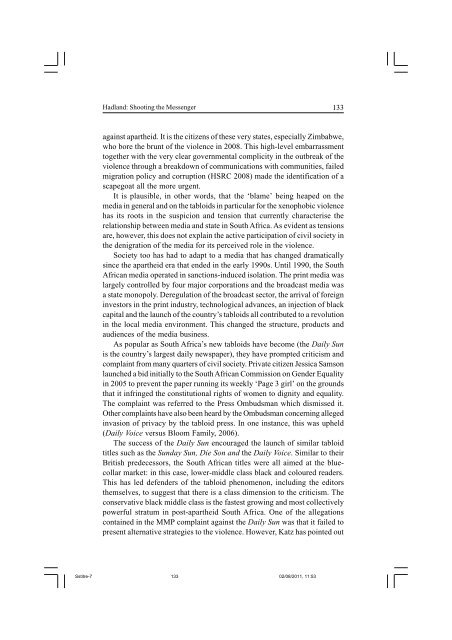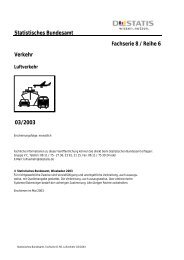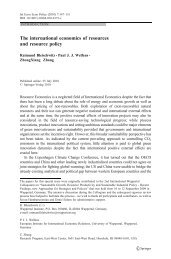lieux (publics) de ville » par les mots ou comment les murs - Index of
lieux (publics) de ville » par les mots ou comment les murs - Index of
lieux (publics) de ville » par les mots ou comment les murs - Index of
You also want an ePaper? Increase the reach of your titles
YUMPU automatically turns print PDFs into web optimized ePapers that Google loves.
Hadland: Shooting the Messenger<br />
133<br />
against a<strong>par</strong>theid. It is the citizens <strong>of</strong> these very states, especially Zimbabwe,<br />
who bore the brunt <strong>of</strong> the violence in 2008. This high-level embarrassment<br />
together with the very clear governmental complicity in the <strong>ou</strong>tbreak <strong>of</strong> the<br />
violence thr<strong>ou</strong>gh a breakdown <strong>of</strong> communications with communities, failed<br />
migration policy and corruption (HSRC 2008) ma<strong>de</strong> the i<strong>de</strong>ntification <strong>of</strong> a<br />
scapegoat all the more urgent.<br />
It is plausible, in other words, that the ‘blame’ being heaped on the<br />
media in general and on the tabloids in <strong>par</strong>ticular for the xenophobic violence<br />
has its roots in the suspicion and tension that currently characterise the<br />
relationship between media and state in S<strong>ou</strong>th Africa. As evi<strong>de</strong>nt as tensions<br />
are, however, this does not explain the active <strong>par</strong>ticipation <strong>of</strong> civil society in<br />
the <strong>de</strong>nigration <strong>of</strong> the media for its perceived role in the violence.<br />
Society too has had to adapt to a media that has changed dramatically<br />
since the a<strong>par</strong>theid era that en<strong>de</strong>d in the early 1990s. Until 1990, the S<strong>ou</strong>th<br />
African media operated in sanctions-induced isolation. The print media was<br />
largely controlled by f<strong>ou</strong>r major corporations and the broadcast media was<br />
a state monopoly. Deregulation <strong>of</strong> the broadcast sector, the arrival <strong>of</strong> foreign<br />
investors in the print industry, technological advances, an injection <strong>of</strong> black<br />
capital and the launch <strong>of</strong> the c<strong>ou</strong>ntry’s tabloids all contributed to a revolution<br />
in the local media environment. This changed the structure, products and<br />
audiences <strong>of</strong> the media business.<br />
As popular as S<strong>ou</strong>th Africa’s new tabloids have become (the Daily Sun<br />
is the c<strong>ou</strong>ntry’s largest daily newspaper), they have prompted criticism and<br />
complaint from many quarters <strong>of</strong> civil society. Private citizen Jessica Samson<br />
launched a bid initially to the S<strong>ou</strong>th African Commission on Gen<strong>de</strong>r Equality<br />
in 2005 to prevent the paper running its weekly ‘Page 3 girl’ on the gr<strong>ou</strong>nds<br />
that it infringed the constitutional rights <strong>of</strong> women to dignity and equality.<br />
The complaint was referred to the Press Ombudsman which dismissed it.<br />
Other complaints have also been heard by the Ombudsman concerning alleged<br />
invasion <strong>of</strong> privacy by the tabloid press. In one instance, this was upheld<br />
(Daily Voice versus Bloom Family, 2006).<br />
The success <strong>of</strong> the Daily Sun enc<strong>ou</strong>raged the launch <strong>of</strong> similar tabloid<br />
tit<strong>les</strong> such as the Sunday Sun, Die Son and the Daily Voice. Similar to their<br />
British pre<strong>de</strong>cessors, the S<strong>ou</strong>th African tit<strong>les</strong> were all aimed at the bluecollar<br />
market: in this case, lower-middle class black and col<strong>ou</strong>red rea<strong>de</strong>rs.<br />
This has led <strong>de</strong>fen<strong>de</strong>rs <strong>of</strong> the tabloid phenomenon, including the editors<br />
themselves, to suggest that there is a class dimension to the criticism. The<br />
conservative black middle class is the fastest growing and most collectively<br />
powerful stratum in post-a<strong>par</strong>theid S<strong>ou</strong>th Africa. One <strong>of</strong> the allegations<br />
contained in the MMP complaint against the Daily Sun was that it failed to<br />
present alternative strategies to the violence. However, Katz has pointed <strong>ou</strong>t<br />
Sstitre-7 133<br />
02/08/2011, 11:53








